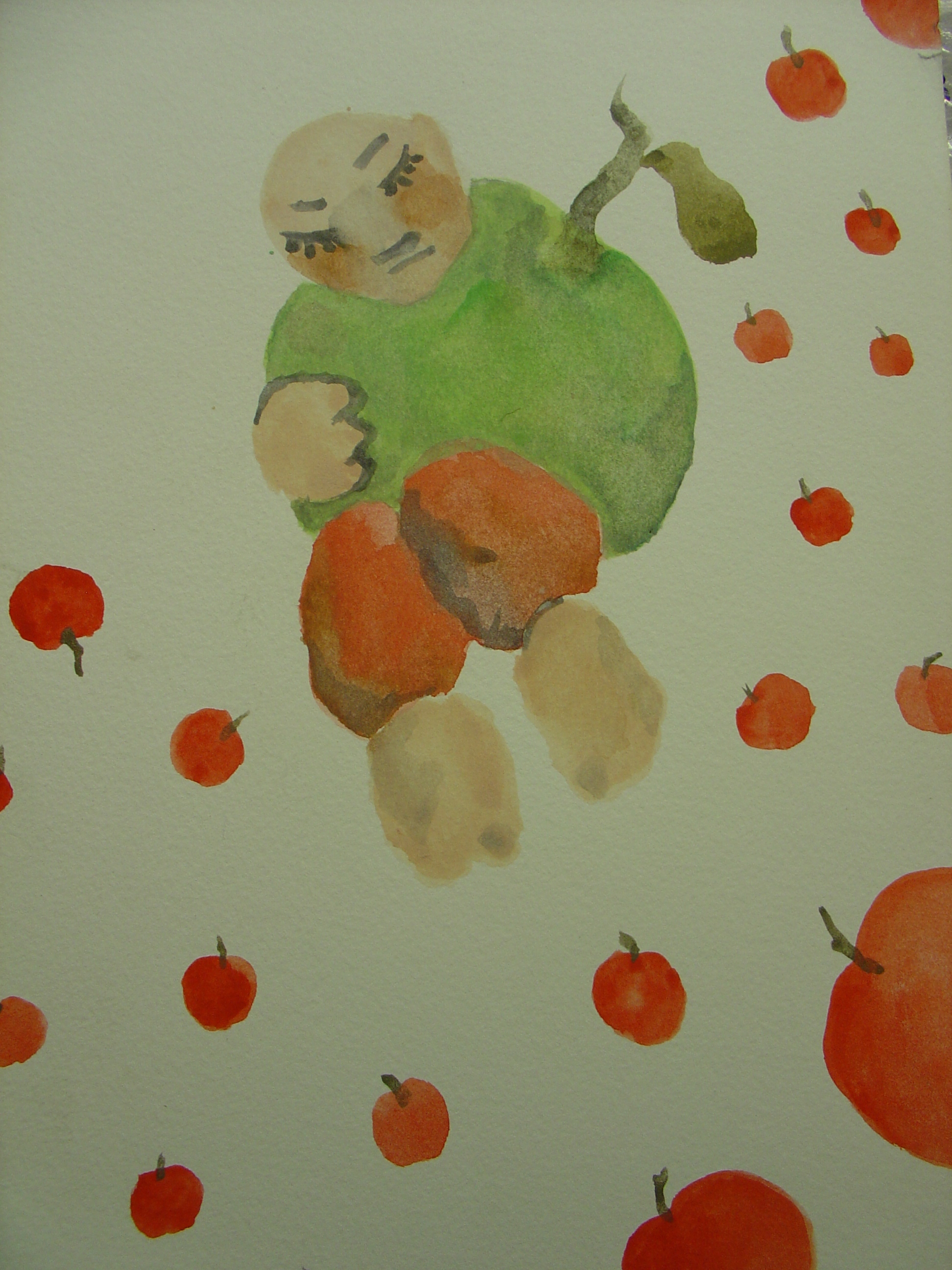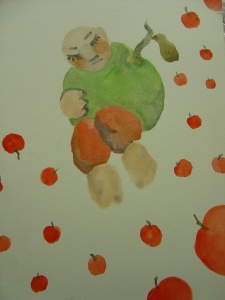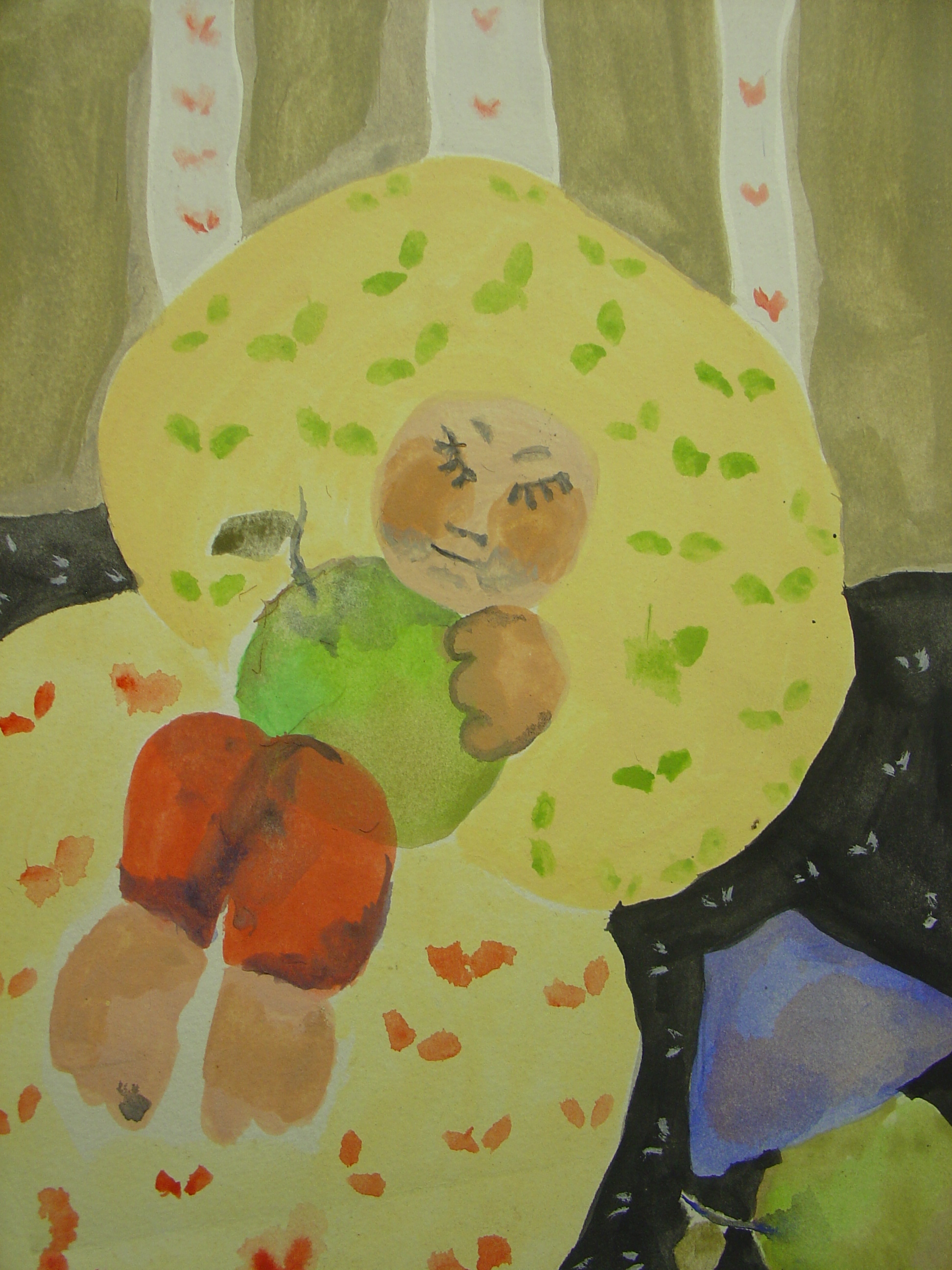Strange Fruit 1
Shame and Sexual Knowledge
It’s not like mom and dad are conservative, I thought. After spending our entire lives abroad, a solo academic career in the US and all this liberation, why the heck hasn’t Amma ever talked about this? Why did I have to learn this from Joyeta rather than mom? What if it’s not licoria and I really have cervical cancer? Frantic questions chased each other, before the inevitable conclusion. The best way – the only way – is to ask Mom about it.
“Mom….umm… Do you know… did you know that every girl above 18 years of age is supposed to have a regular cervical cancer test?”
And I saw my mother’s face bleach out.
***
Aahung’s life skills education manager, Sheena Hadi, says it’s a very common scenario – most girls discover facts related to sexual health through friends.
“Puberty is an introductory point, the prime time for information regarding basic hygiene, physical changes, our bodies, etc. But because parents are so uncomfortable discussing the subject of our bodies, I’ve noticed that less than 30% girls know what menstruation is – although it’s a biological phenomenon, not sexual.”
Talking to Hadi made me realize that I, too, had grown up with myths. Myths like showers during the menstruation cycle “swell up the lower tummy”. Elder women, aunts, and cousins, share minimal sexual information, guarding them like Pentagon secrets. Friends are the best, non-judgmental relations where shame is covered by giggles and questions are answered. Hadi says a lot of myths are born right here. “As parents and adults, we define who are the right and wrong friends to hang out with. It’s really a matter of what our expectations are and what steps we are taking to help our children live up to them.”
In an era driven by unlimited mediums of disseminating information, a vast majority of young Pakistani women resort to gossip to answer their queries about their own sexual health. Commonly, mothers squeeze the “women’s problem” between deciding what to cook for lunch and the hit soap opera. Fathers, as Hadi says, never have a chat about the “birds and bees” with their sons.
“Girls will resort to cousins for information but in this particular instance, boys are at a greater risk. Boys are less likely to question these things because they are “wrong.” “Dirty” is a frequent term they use to describe their thoughts and even visit quacks to control normal bodily functions.”
At a recent conference regarding sexual rights, Pramada Menon, director of a sexuality institute CREA , demanded a second look at how we define our bodies. “I don’t understand… why do we use the words ‘chi chi’ and ‘shame shame’ for our private parts? Since childhood, because they are shameful and oh-so-taboo, our children never discuss them.”
Hadi reaffirms that this “shame” is internalized and associated with our private parts. She says when cases of sexual abuse come to her, most children suffer with guilt because someone touched their “shameful” parts and so they don’t want to talk about the experience, as an extension of that guilt.
But the problem doesn’t stop at guilt only. Neha Sood, training coordinator of IRAD (Institute of Research, Activism & Development, CREA) says denying this basic information might mean the difference between acquittal or prosecution in sexual abuse. “In a famous child abuse case in Delhi, the offender was almost declared ‘not guilty’ because the child could not define the body part that was used to sodomize him. Eventually he likened it to an ‘oozing glue stick’. A phrase that saved the lives of a potential score of children that the pedophile might have abused.”
Yesterday, riding high on my “right to information” as a journalist, I visited a very prestigious hospital in Islamabad to interview a “top-notch” gynecologist. Minutes later I was blushing furiously and squirming in my seat because the gynecologist reprovingly enquired, “You are not married… but you need to know about the symptoms of pregnancy?”
Hadi comforted me that I’m one of many victims of the “information provider/moral judge” syndrome. “More often than not doctors frame their questions to make a patient rethink their moral values. Aahung trains information providers to address the problem because a marital status, for example, does not validate sexual activity or lack of it. Similarly, issues of confidentiality are important because a girl cannot discuss her sexual history before her mother-in-law.”
The problem, of course, is multifold. It’s not only a lack of information – basic information that pertains to survival, but a stark denial as well. Take the time to get close to any teenager above 15 (or even younger – 15 is not necessarily the starting age) and you can discern symptoms of sexual activity in the conversation and behaviour. Researchers in Rozan, an Islamabad-based NGO working on child sexual abuse, say that no concrete data is available but young people in the higher economic classes have a greater rate of engaging in sexual activity.
As Sheena Hadi returns to designing school curriculum, I slip out of the room, thinking my mother has spent an entire lifetime believing that showers during menses cause a bloated stomach. I hope finding out that it’s not true will bring some color back to her face.
Barcelona
Cushion
Marginalized Voices
Who can legitimately have a say on the topics of sex and sexuality? This is determined by one’s relationship to privilege. We know that whereas one voice may be heard, many are marginalized and never heard. Therefore, before we speak about sex and sexuality, I wish to consider those voices that are often not heard within such discussions. The challenge thus is to include these Other voices within this very important discussion.
In Pakistan, “poor women’s higher unaccompanied mobility was associated with a loss of prestige and susceptibility to sexual violence. Among richer women, such movement did not constitute a legitimate target for male exploitation, nor did it lead to a loss of status on the part of their families.”1 So we know that Pakistani women face issues of access and mobility within public space specially women belonging to the disadvantaged classes. Being seen or heard in public space can lead to violence for women who cross the threshold that delineates the home as the “private” sphere and the supposedly “safe” space for women. Public space is for men, and to cross that threshold is to break the rules that govern female bodies and for this, they are punished. Rules that create the public/private dichotomy are certainly not specific to Pakistan.
However, do the same socially-constructed rules of the public/private boundaries apply to cyberspace?. It seems, women with better educations, better access to knowledge, and access to technology and the internet have a better chance of taking part in conversations on cyber-space. Therefore, in some ways, the same rules do apply.
Another barrier to speaking openly and honestly about sex and sexuality in the Pakistani context is religion or the degree of religiosity of your family. You cannot speak about sex and sexuality if you believe that doing so is a sin or can lead to sin. Such beliefs are fed to women at an early age in order to keep them from having agency over their own bodies. “Your body does not belong to you; it belongs to your father, brother, and husband”. Therefore, you need not think of your own needs, desires, health, or anything else that makes you a whole person. In fact, women are taught to deny themselves pleasures in order to achieve piety which we are told comes with rewards in the afterlife. However, there will not be 40 virgins waiting for you women next to streams flowing with milk and honey. The Muslim male subject, however, is conceived as a whole person, with an active sexuality, and deserving of more sex and sexuality in the afterlife.
The politics of self-expression is premised on a notion of a subject who is capable of being self-reflexive, inward-looking, self-contained2, and whole subject who belongs to himself, and not to his mother, sister, or wife. Supposedly, the right to legitimately express opinions and ideas belong to only those who have agency, who own themselves and therefore can look within themselves and speak from their whole selves. Alternatively, Muslim women are taught that they do not have “right” to express themselves the same way as men. We are told that we must let our (mostly male) ‘guardians’ to decide on our behalf. For those women who believe that their sense of piety and honour is in jeopardy if they speak out about sex and sexuality, these women will not be part of the discussions here.
I do not assume that women lack agency; I believe they do have the option to believe that a sense of piety and honour is not at stake if they make claims over their own bodies and choose to speak from their bodies; I believe that honour and piety should depend on the strength of your faith in humanity and social justice; and I believe that they themselves choose to stay silent in spaces where I believe their opinions are much needed and their insights much valued. Is it not said, “speak up or be spoken for”? At the same time, I also know that patriarchy has made it so that speaking up comes with a price, one which many women are unwilling to pay; so they do not speak up in fear of punishment or loss of social capital.
The point is, when “we” as Muslim women come to the table to speak about issues of sex an sexuality, “we” are not on an equal playing field, therefore, some voices have more weight than others, and still others are silent all-together. We also have different, and at times, conflicting concerns. Once we recognize these differences between women, only then can we start to think of ways to alleviate the inequalities, if we believe that we all have the right to express and be heard.
1 Mumtaz Z, and Salway S. “I never go anywhere’: extricating the links between women’s mobility and uptake of reproductive health services in Pakistan”. SOCIAL SCIENCE & MEDICINE 60(8) (April 2005: 1751-1765.
2 Majeed, Javed. “Being Middle-Class in South Asia”. History Workshop Journal. Issue 65, Spring 2008: 247-252.







